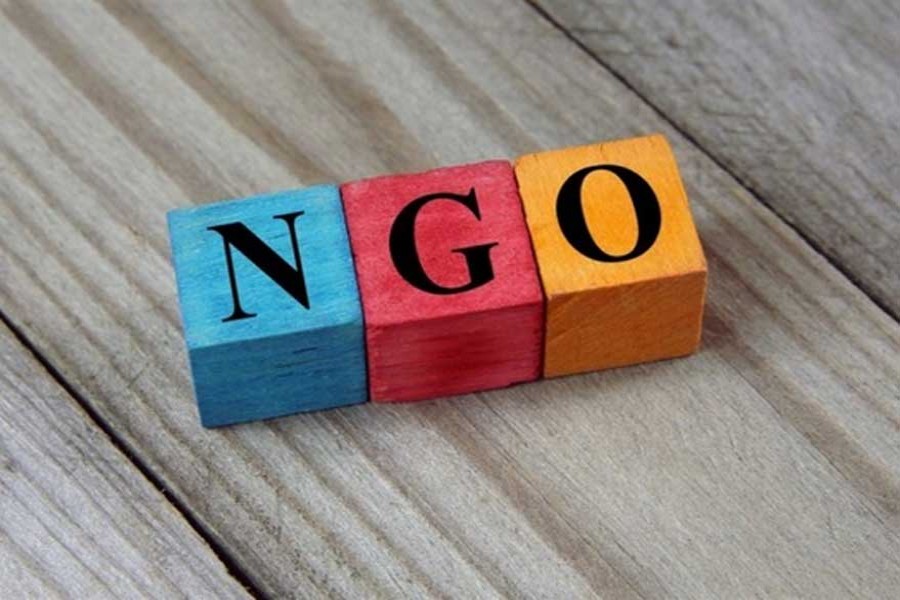
Published :
Updated :

So it's all about greed for quick money. Reports have it that a non-governmental organisation (NGO) operating illegally in Chattogram under the banner of Social Services and Elimination of Poverty (SSEP) recently shut down its office and ran away with the depositors' money. The depositors, mostly low-income people, have been depositing money as installments for some years -- duped by the scheming of the so-called NGO. The blame here should be squarely on the depositors themselves who were lured by the promise of lucrative returns. By any measure, it's cheating and must not be tagged to any institutionalised system given the illegal mode of operation of the so-called NGO.
Although this incident does not necessarily defile the role of the numerous NGOs operating in the country nor their modus operandi, the fact that must not be ignored is that there is a serious lack of supervision of the myriad NGO activities. Some time ago, it was learnt that the government, in the absence of an effective regulatory body to oversee NGO activities, was contemplating to set up a Commission. The move came in the wake of allegations of less than transparent financial deals involved in the operation of the NGOs. Terror financing which emerged lately as a potential global threat could perhaps be one of the fears that prompted the authorities to initiate the move.
The proposal for establishing the Commission aiming at bringing all non-governmental organisations under a single authority to ensure transparency in their financial transactions got approved by the secretary-level committee for administrative development. The purpose is to see that NGOs registered with various authorities are made accountable to a single agency in order to be able to closely monitor, and if necessary, regulate their operations in respective fields in a coordinated manner. The Commission is also expected to produce a draft Law in this regard.
Bangladesh, a breeding ground of NGOs since the inception of the country, has over the decades allowed them to grow and flourish, much to the mixed reaction of the conscientious sections of the civil society. However, it is needless to emphasise that alongside the mega NGOs - two of them being the largest in the world - numerous small and medium-sized NGOs have made laudable contributions to socio-economic upliftment of the poor. NGOs are also well known as more proactive than traditional government functionaries, which has earned them a considerable influence over almost all spheres of the society and the legitimacy of a parallel force to reckon with.
However, this does not say all. There are controversies on the modes of receiving funds from the donors, the spending patterns, financial transactions and so on. Besides, there have been allegations that despite the positives of NGO intervention, the resources that reach the target group are far less than they actually should be. These are the grey areas that have grown unhindered in the absence of transparency and effective overseeing authority.
That the functioning of the vast number of NGOs is beyond the knowledge of the government is largely because of their being registered with various authorities/ directorates of the government under various Acts, such as - Societies Registration Act, Trust Act, Voluntary Social Welfare Agencies (Regulation and Control) Ordinance, Co-operative Societies Act, Companies Act etc. This also brings to light the questionable role of the NGO Bureau. Why then was the Bureau set up if anyone wishing to launch an NGO is free to choose from any of the aforementioned bodies to be registered with? If registration is not under the purview of the Bureau, how could it be expected to monitor and regulate their operations? Obviously, this brings in the issue of legitimacy as regards the parent entity of the NGOs. It has been reported some days ago that the ministry of social welfare scrapped registration of a large number of NGOs on charges of corruption and lack of clarity in their activities. Is it the social welfare ministry that is empowered to call the shots? There is definitely a grey area as to who should regulate, monitor, or supervise the activities of the NGOs.
As the country advances to keep up with its growth momentum, there will likely be more areas for the NGOs to work on. While so far, poverty and illiteracy are the areas where most of the NGO efforts have been directed, in the days ahead their job will increasingly involve activities of specialised nature like skill development, vocational training, income generation from non-farm sources and so on. So, the need to see them in a more challenging and indeed economically meaningful platform will call for a well devised plan on the part of the government to closely monitor and where necessary, regulate their activities to ensure transparency and public welfare.


 For all latest news, follow The Financial Express Google News channel.
For all latest news, follow The Financial Express Google News channel.